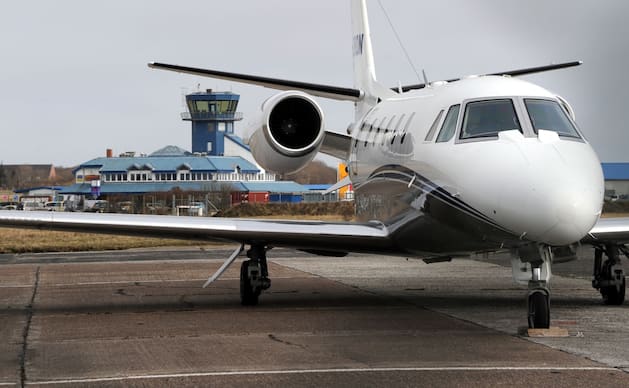The owners of expensive yachts and fast private jets benefit from exemptions from carbon trading. The EU, which is said to be doing everything it can to tighten CO2 trading and protect the climate, has left a gap here. Was it on purpose?
It was a week before Christmas when applause erupted in the meeting room of the EU Parliament in Brussels: After around 30 hours of marathon negotiations, MEPs had agreed on the “Fit for 55” climate package. One or the other MEP spoke of a “historic moment”. It was about a reform of European emissions trading: companies in the EU – such as power plants, chemical plants and cement factories – have to buy pollution rights.
Their quantity is constantly being reduced in order to give companies an incentive to emit less carbon dioxide. The applause was now for the decision to reduce the certificates more quickly and thus save greenhouse gas emissions more quickly. In addition, the system is to be extended to other sectors. In addition, free allocations that some polluters have received so far are to be gradually phased out. With a few exceptions.
These exceptions include two particularly sensitive industries: private planes and private yachts. Their owners or renters are further excluded from carbon trading. The EU had decided to extend emissions trading to include road and ship traffic as well as buildings. However, this was a decision with qualifications.
The whole thing does not apply to “non-commercial operators or pure leisure boats,” said the EU Commission at the request of Norddeutscher Rundfunk. The size of the ships is irrelevant. Those billionaires and oligarchs who own ships the size of small passenger steamers do not have to buy any CO2 rights, at least if they use their yachts themselves.
According to NDR research, a yacht that does not fall under emissions trading and can currently be chartered is the “Dream”. It has a pool, of course also a spa area, a cinema, helipad, 22 luxury cabins and more than 30 -strong crew. It costs around two million euros to rent a week. With its 290,000 liter tank, it can travel almost 12,000 kilometers at medium speed. That corresponds to a consumption of around 240 liters per 100 kilometers – and more than 6.5 tons CO2.
Exception rules also apply to private planes. If you use a machine privately or for your own company, you can emit up to 1000 tons of CO2 free of charge. For commercial operators, such as charter companies, the limit is even 10,000 tons. This form of locomotion is also not a marginal phenomenon. More private planes took off from German airports last year than ever before.
The air control organization Eurocontrol recorded a total of more than 94,000 take-offs of aircraft from the so-called business segment, an increase of nine percent compared to the previous year. Private flights accounted for around twelve percent of all air traffic in Germany. It is mainly about domestic flights with distances of less than 500 kilometers.
Some rich people can therefore continue to travel in an extremely CO2-intensive way without paying additional costs, whereas road traffic, for example, will be subject to emissions trading throughout Europe in the future. “This unequal treatment is really amazing and very unfair,” says Jacob Armstrong of the non-governmental organization Transport
The reason given by the EU Council of Ministers and the Commission for superyachts and private aircraft being exempted from emissions trading for the time being is the “bureaucratic effort” that arises when every captain and pilot has to report their emissions. MEP Peter Liese from the CDU sees it differently. After all, the CO2 price can simply be added to the fuel consumed – similar to what is already happening on the road in Germany.
If you know which devices at home use how much electricity, you can make targeted savings. Our e-paper shows which devices use how much electricity for all common household appliances, from ovens and hobs to refrigerators and washing machines to TVs and WLAN routers. There are also a number of instant power-saving tips.
According to Liese, the Council and Commission rejected this. The aim was not to burden owners of smaller private boats, fishermen or operators of island ferries with any additional costs. That’s what happened – co-beneficiaries, however, are probably the super-rich, for whom a few thousand euros more in gas costs would no longer matter in view of the champagne bill.
The article “Yachts and private planes of all things can continue to stink” comes from WirtschaftsKurier.















